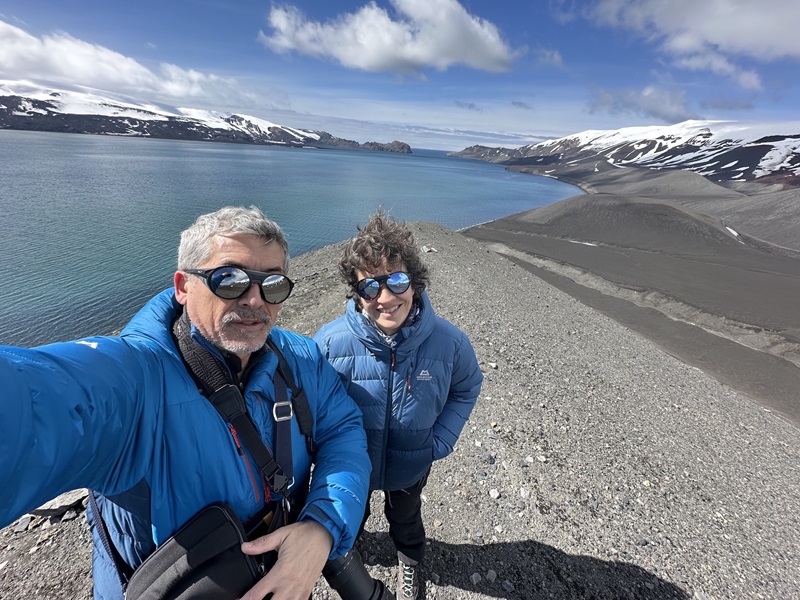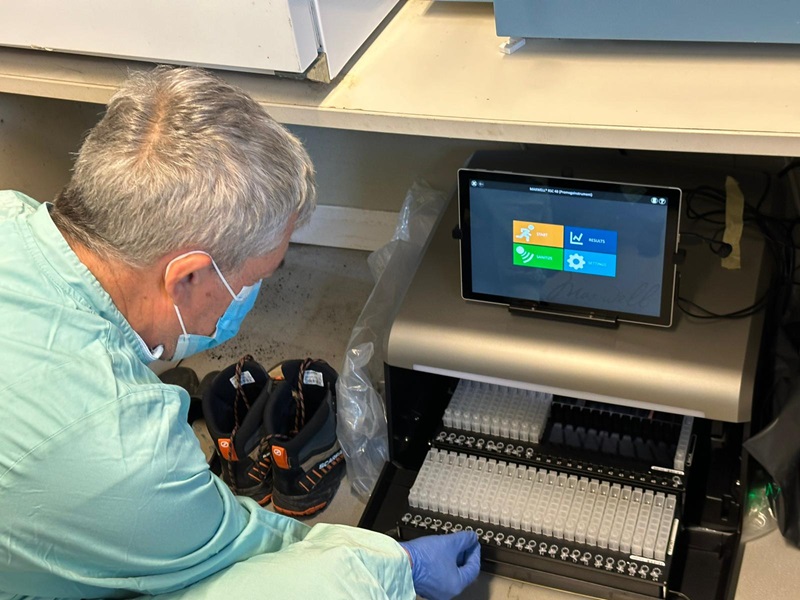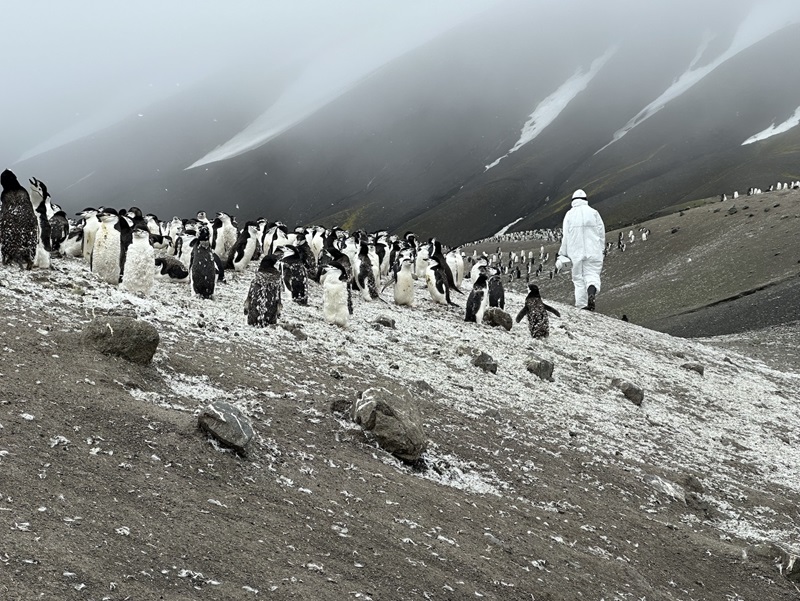In January 2024, Antonio Alcamí and Ángela Vázquez, virologists from the Severo Ochoa Centre for Molecular Biology, landed in Antarctica to study the avian flu virus. They embarked on a journey to monitor 17,000 penguins as part of their efforts to study the virus and prevent its spread. Our Maxwell® RSC 48 was delivered to extract nucleic acids from the samples, which are set to be analyzed using qPCR.

Their arrival at Deception Island proved challenging, yet despite minimal rest, they began setting up their diagnostic laboratory. Unlike other expeditions, this setup enabled immediate analysis of the collected samples. “There are very few countries that have set up a laboratory of this kind in Antarctica,” Alcamí explained. “We have the great advantage of being able to respond relatively quickly to confirm whether or not there is a virus,” he added.
Working so far from her standard lab presents distinct challenges, Ángela Vázquez notes, such as distinguishing between clean and contaminated areas, and managing limited space. Their ‘office’ is uniquely situated in the caldera of an active volcano. Upon arrival, they are greeted by around 17,000 penguins. “They are very nice, very curious, very friendly. When you’re out there, they always come over to see what you’re doing,” says the researcher.

Avian influenza viruses, known as H5, are constantly evolving into new strains. Previously, these viruses had not spread as effectively. However, a notably rapid transmission occurred from the United States to Latin America, where the virus spread to wild populations, requiring immediate control efforts.
In Argentina, the avian flu virus has already claimed the lives of more than 1,000 sea lions. Similar numbers have been recorded in Brazil. Virologists believe the chances of the virus transmitting to humans are very low. However, in the rare instances where human infections have occurred, the mortality rate has been notably high, ranging from 40% to 50%.
The team’s latest update brings encouraging news. After several months of diligent monitoring, they reported, “We detected penguins infected with low pathogenic seasonal avian influenza, but not with the H5N1 virus.” This important discovery highlights the success of their continuous efforts and suggests that the virus can be managed effectively within this isolated ecosystem.

